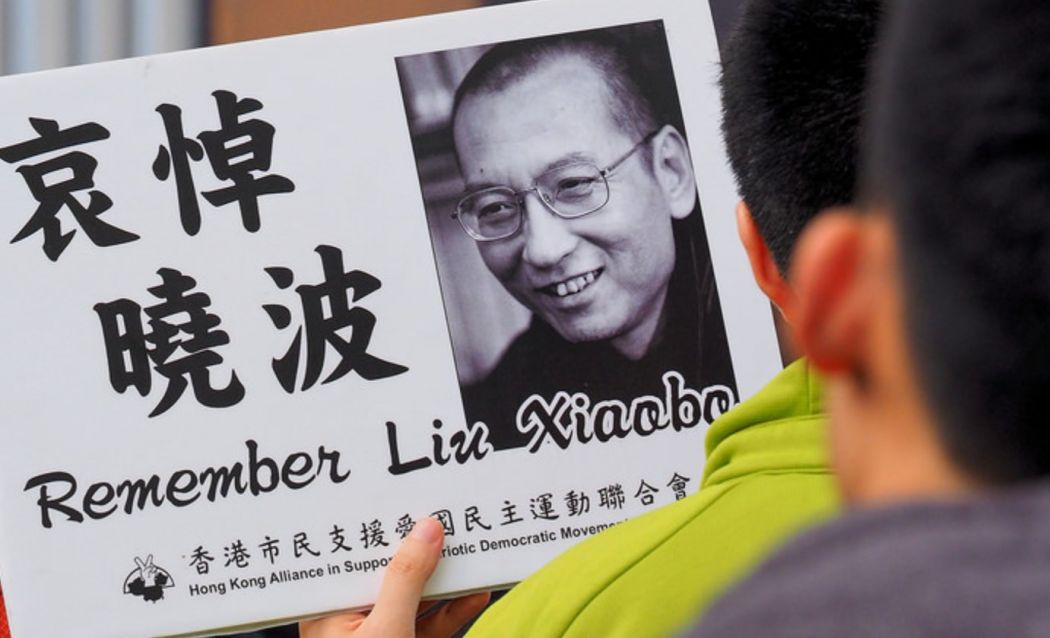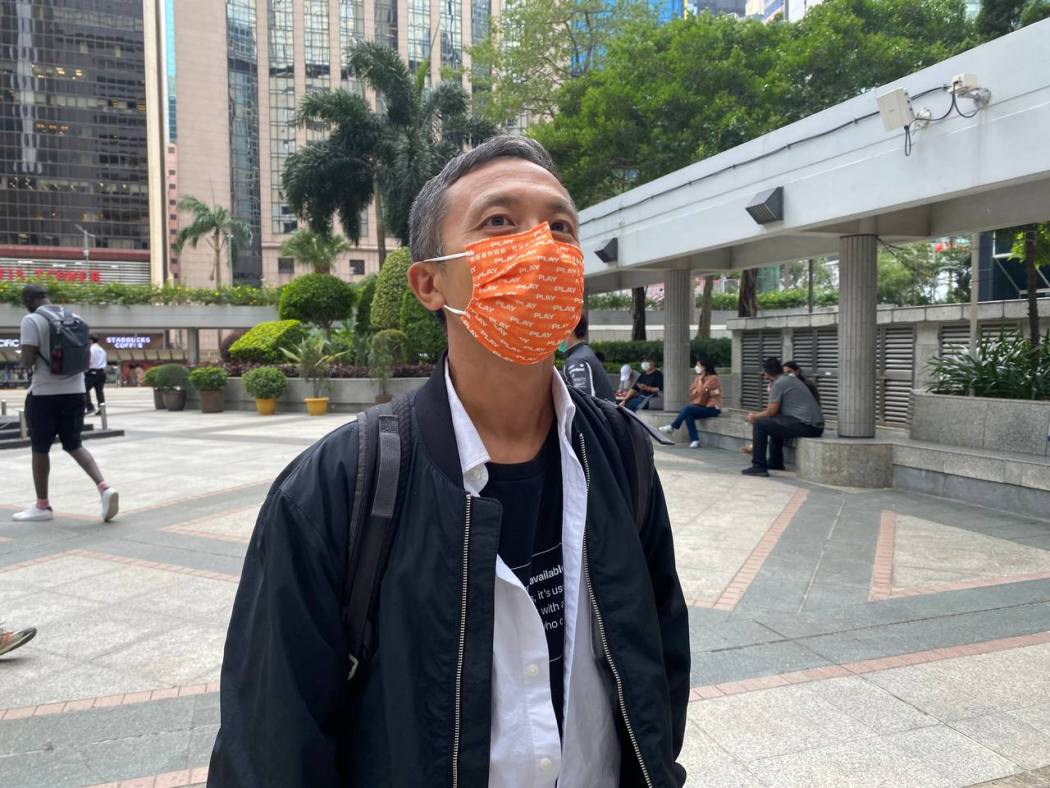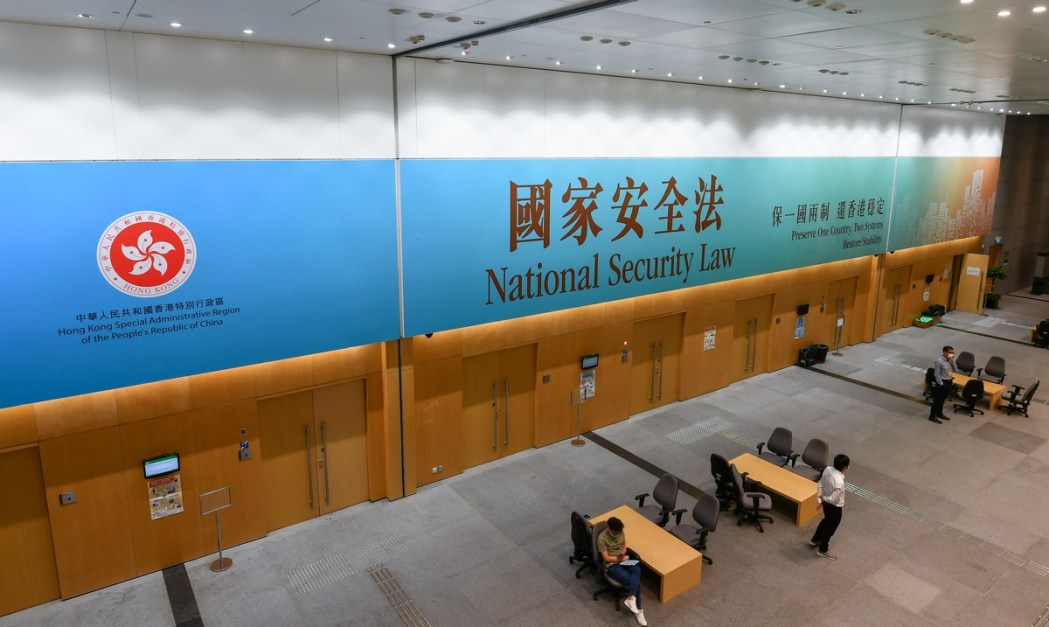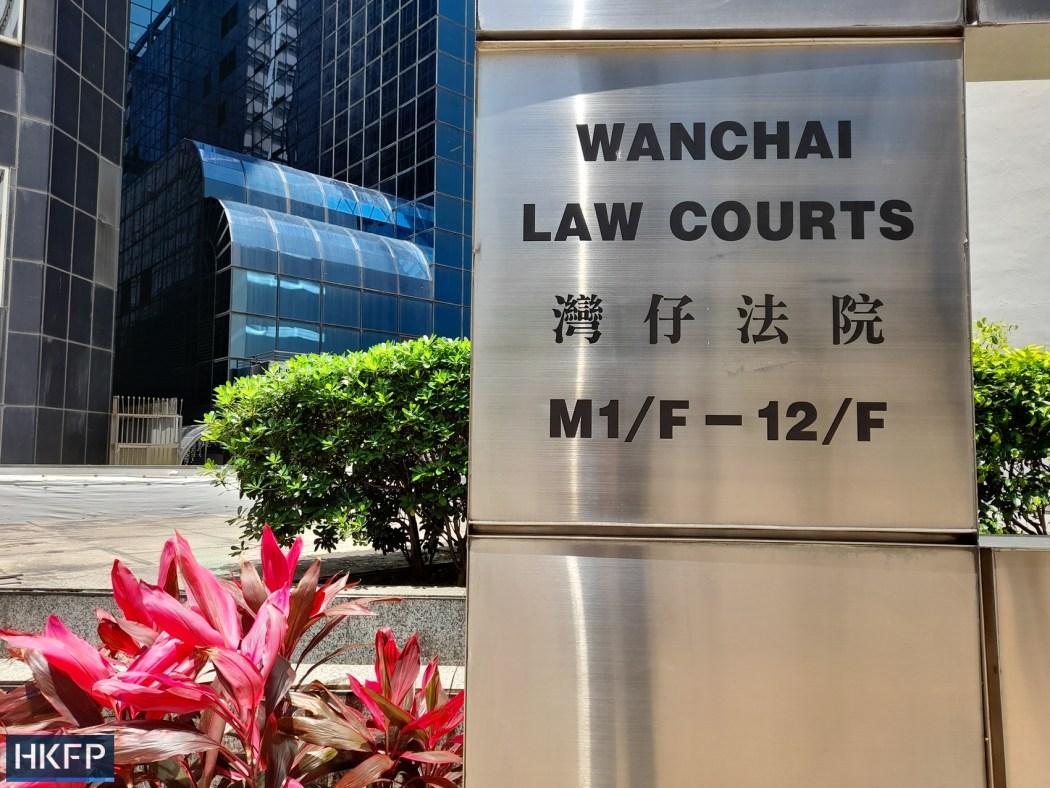A former Hong Kong editor on trial for sedition said on Thursday that a commentary which he had published about the fate of a top Chinese dissident was not intended to stir up hatred against authorities but to point out their mistakes.

The comments by Stand News‘ former chief editor Chung Pui-kuen came as lead prosecutor Laura Ng continued questioning him in front of District Judge Kwok Wai-kin about an op-ed written by veteran journalist Allan Au.
Chung is accused of conspiring to publish 17 “seditious” pieces between July 2020 and December 2021 together with the outlet’s former acting chief editor Patrick Lam and its parent company.
Au’s op-ed, which was published by the independent online outlet on June 1, 2021, forms part of the alleged offence.
The 17 allegedly seditious Stand News articles – click to view
- Profile of Gwyneth Ho, a candidate in the 2020 legislative primaries held by the pro-democracy camp, published on July 7, 2020.
- Profile of Owen Chow, a candidate in the 2020 legislative primaries held by the pro-democracy camp, published on July 27, 2020.
- Profile of Fergus Leung, a candidate in the 2020 legislative primaries held by the pro-democracy camp, published on August 12, 2020.
- Commentary by Chan Pui-man, Apple Daily’s former associate publisher, criticising speech crimes, published on September 12, 2020.
- Commentary by Nathan Law, a former lawmaker now in self-exile, on “how to resist” under the national security law, published on September 20, 2020.
- Profile of Law on his “battlefront” of calling for sanctions on the Hong Kong government in the UK, published on December 9, 2020.
- Commentary by Law on “resilience in a chaotic world,” published on December 13, 2020.
- Feature interview with Ted Hui, a former lawmaker in self-exile, after he fled Hong Kong with his family, published on December 14, 2020.
- Feature interview with Baggio Leung, a former lawmaker in self-exile, as he called for sanctions on Hong Kong and a “lifeboat scheme for Hongkongers,” published on December 15, 2020.
- Commentary by Sunny Cheung, an activist in self-exile, responding to being wanted by the Hong Kong government, published on December 28, 2020.
- Commentary by Allan Au, a veteran journalist, on “new words in 2020,” which included “national security,” “disqualified” and “in exile,” published on December 29, 2020.
- Commentary by Au calling a national security trial a show, published on February 3, 2021.
- Commentary by Law paralleling the mass arrests of candidates in the democrats’ primaries to mass arrests during Taiwan’s white terror period, published on March 2, 2021.
- Commentary by Au accusing the authorities of “lawfare” in usage of the sedition law, published on June 1, 2021.
- Commentary by Au describing Hong Kong as a disaster scene after the implementation of national security law, published on June 22, 2021.
- Feature about CUHK graduates’ march on campus to mourn the second anniversary of the police-student clash in 2019, published on November 11, 2021.
- Report on Chow Hang-tung’s response to being honoured with the Prominent Chinese Democracy Activist award, published on December 5, 2021.
The government lawyer asked Chung if Au’s commentary – that “Liu Xiaobo published Charter 08 to demand political reform and was charged with inciting subversion of state power and imprisoned until death” – was misleading, since the details of the Chinese right activist’s offence and the medical aid he received in jail were not mentioned.
Liu, a Nobel Peace Prize winner, was sentenced to 11 years in jail in 2009 and died at a mainland hospital in 2017 after he had been diagnosed with liver cancer and released on medical parole.
“When a layman reads that, won’t one of the impressions be that Liu was handed a life sentence and truly died in prison?” Ng asked.
The editor said Liu’s case was widely known in Hong Kong and there was little chance that people would misunderstand the commentary.

The prosecutor then questioned Au’s choice of words – that Liu was pushing for “political reform,” instead of mentioning details of Liu’s advocacy such as overthrowing the Chinese Communist Party’s rule. She asked if the phrasing was intended to reinforce the author’s stance that there was an “incitement law with Chinese characteristics” devoid of Western liberal values.
Chung said he believed the commentary showed the author’s understanding of Liu’s case as a demonstration of China’s use of the offence as “an unreasonable means to suppress dissenting voices.”
Liu’s fate, he said, was widely seen by Hong Kong and overseas scholars or legal figures as an example of China’s suppression of dissent.
Chung said that while the prosecutor could claim that Au’s description of Liu’s case was incorrect, “to many people it is, in fact, accurate.” The statement had a factual basis and the fact that its accuracy was debatable did not mean it was seditious.
Chung also said he agreed with how Au summarised Liu’s situation.
The prosecutor also questioned how Au had mentioned that civil right lawyers in China had been charged with incitement to subversion, without giving any concrete examples.
Chung said that what happened to rights lawyers in the mainland was “a very obvious fact.”
“If I have to give the runaround or evade my understanding of the facts for my own defence, I cannot do so,” he said.
Allan Au’s intention
Ng then questioned whether Chung had ever found Allan Au’s op-eds hard to understand or needing clarification.
The former editor said he did not. He could basically understand the facts on which Au based his commentaries and the basis on which the author made his criticisms.
“I can fully feel that Au was making these criticisms based on his responsibility as a public intellectual,” Chung said.
He said the reason why Au insisted on writing commentaries after the enactment of the national security law – putting his career and personal freedom at risk – was not to incite hatred, but to point out the authorities’ mistakes and ask for improvements or change.

“You can say his judgements are wrong, or go as far as saying that the universal values he has been upholding must give way to national security or other interests under Hong Kong’s new circumstances, but I think you cannot slander his intention as being to excite hatred, or people’s disaffection of the government,” Chung said.
During Thursday’s hearing, Ng also asked if it would be easier to accept the writer’s commentaries if the readers were fond of Au’s op-eds or of other Stand News content.
Chung admitted some readers would be so inclined but Au was seen as an advocate of non-violent protests and had long not been welcomed by more radical readers.
Major social events in op-eds
The prosecutor also asked if the main idea of the op-ed was that both Hong Kong and China were abusing the law of sedition or incitement to oppress the public.
Chung said he thought it was a viable way to understand the article as it reflected the concern that the Hong Kong authorities would use the law as a weapon against political opponents.
“I dare not say what will happen to a member of the public if he/she shouts out ‘end one-party dictatorship’ in front of police on the street,” Chung added.
Ng then asked if the piece would cause the public to be angry with the government, as it said they might be charged with incitement of subversion for chanting the slogan commonly heard for 30 years at annual vigils to commemorate the Tiananmen crackdown.
Chung said many Hongkongers were indeed feeling “a mix of anger, discontent, sorrow and disbelief” at the time when Au’s piece was published, since the organiser of the vigils, the Hong Kong Alliance in Support of Patriotic Democratic Movements of China, was considering disbanding due to accusations that it violated the security law. It has since shut down amid legal pressure.
However, the former editor said his judgement was that Au’s commentary would not incite heated emotions.

The government lawyer also asked if Au’s mention of mainlanders prosecuted for commemorating the Tiananmen crackdown and supporting Hong Kong’s Umbrella Movement would easily stir up people’s emotions, as many people held strong about the two events.
Chung in turn asked the prosecutor if she meant that “social incidents widely supported by a large number of Hongkongers cannot be mentioned or cited in op-eds as they would easily excite reader’s feelings of anger or hatred.”
“If so, I would think that is quite an absurd restriction on commentary writing,” he said.
Ng said her position was that op-eds should clearly set out a factual basis when discussing social events.
However, Chung said he thought Au’s way of writing was “very normal and reasonable” and it was not necessary for writers to list all the facts before expressing their viewpoints.
‘Misinformation’
During Thursday’s hearing, the prosecutor also asked about three commentaries penned by Allan Au which were published by Stand News but were not among the 17 “seditious” articles cited in the charge.
In one published on April 24, 2021, the writer was cited as discussing the various types of “misinformation,” which included “half-truths,” “over-interpretations,” and “incomplete information.”
The prosecutor said as a veteran writer, Au should be aware of these forms of misinformation and try his best to avoid them in his work.
Chung then said that according to his judgement, Au’s commentaries did not contain any misinformation.
The editor agreed when Judge Kwok asked if he thought commentary authors should abide by the principle that their work should not carry misinformation.

The prosecutor said Au had omitted the various thresholds written in the security law’s implementation rules when criticising them in a separate op-ed as “a blank cheque” that gave police sweeping powers to search premises without warrant, freeze assets, require internet service providers to remove information and request foreign organisations to hand over information.
Chung said Au’s commentary reflected the concerns of many people about the powers granted to police under the national security law, which “should not be overlooked just because there were thresholds.”
In another article cited by the prosecution, Ng said Au had “made up his own examples” when saying Beijing would send national security defendants to be tried in the mainland and face a potential death sentence if it lost faith in the chief executive’s handpicked judges.
Chung said Au made his comments on July 6, 2020, only days after the security legislation was implemented. “Who can say anything is for sure, especially at that time?”
The editor added that he could understand the reasons behind these concerns.
Chung said he thought the government should clearly explain the legislation or even amend it. There had been many voices saying that the security law was worrying for many Hongkongers and destructive to the rule of law.
The prosecutor then suggested that the legislation should only affect “a very small amount of people.”
But Chung said even the former head of the Hong Kong Bar Association, scholars and organisations under the United Nations had talked about the problems of the security law.
The hearing will resume on Friday.
Support HKFP | Policies & Ethics | Error/typo? | Contact Us | Newsletter | Transparency & Annual Report | Apps
Help safeguard press freedom & keep HKFP free for all readers by supporting our team
























